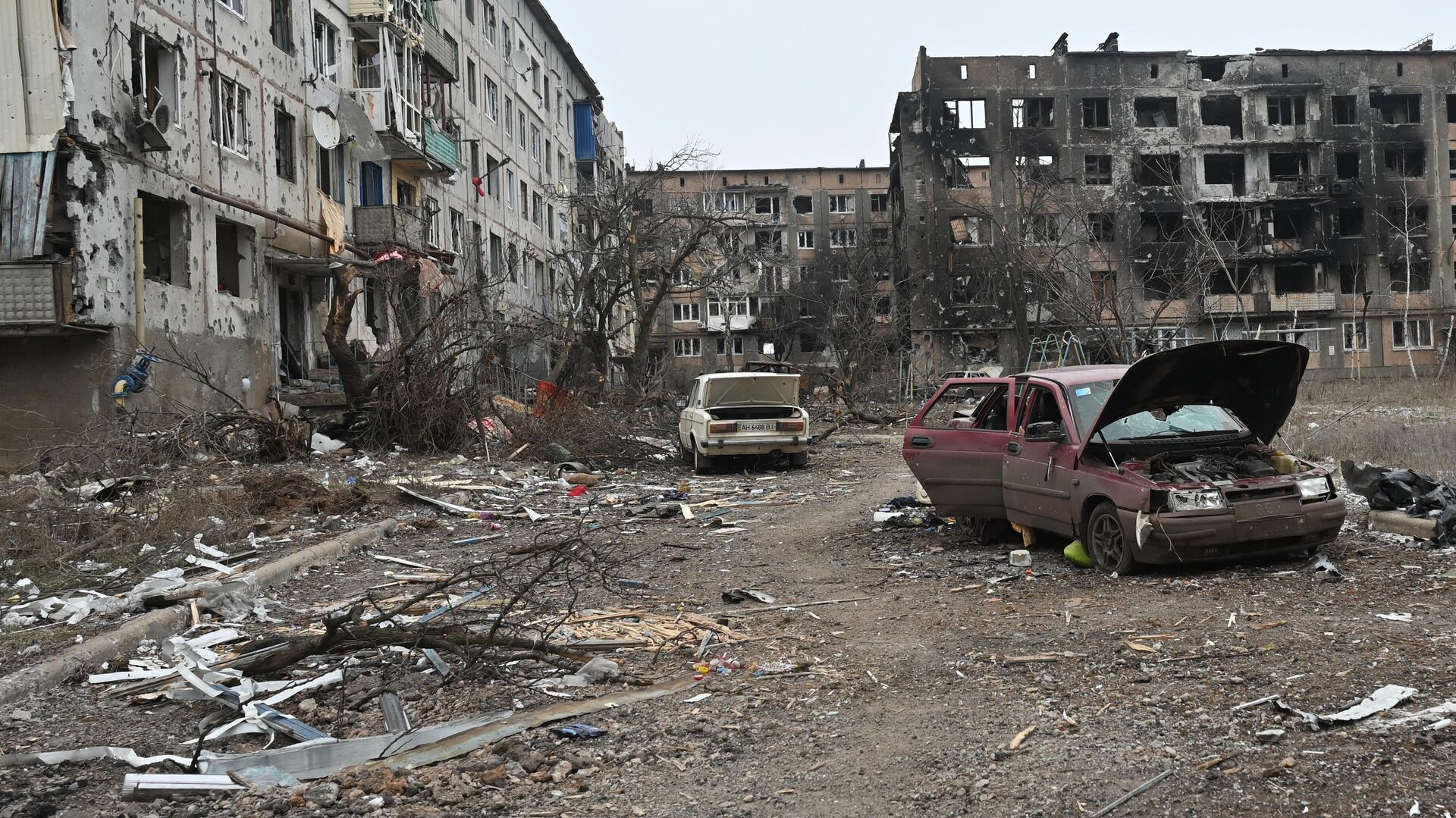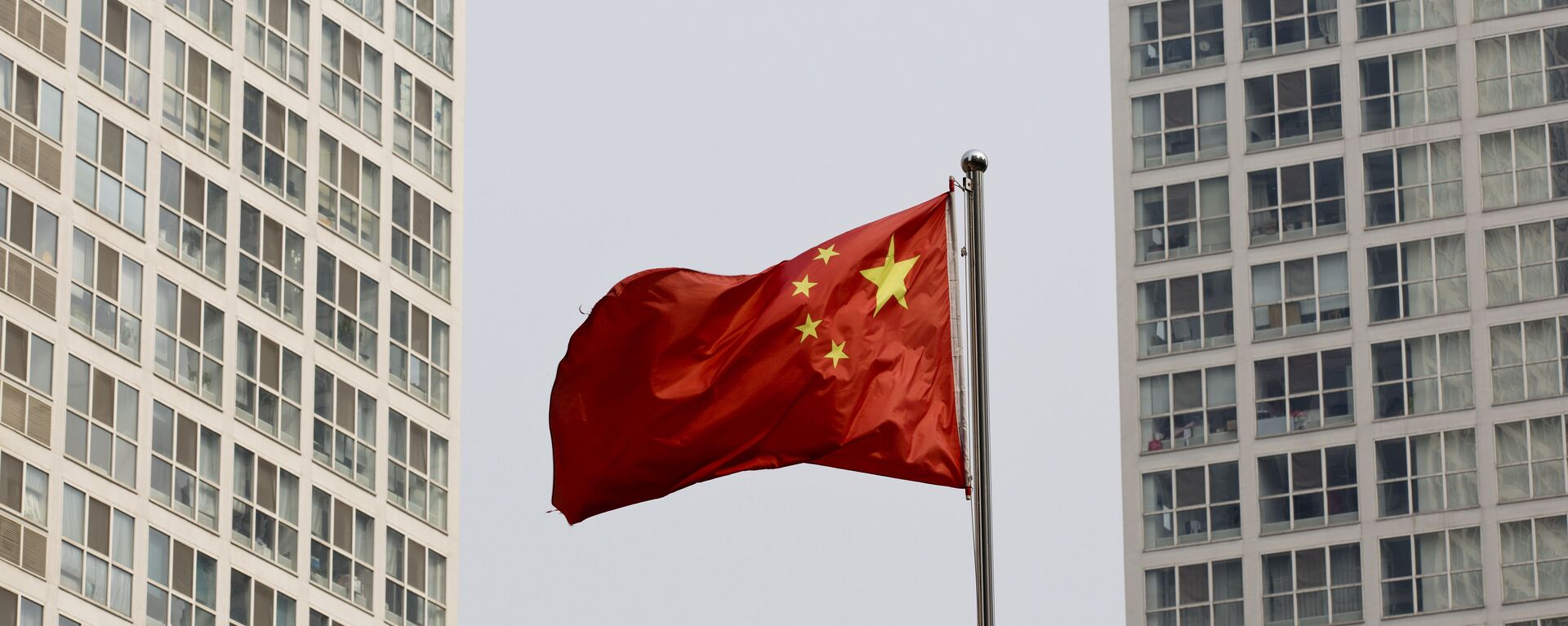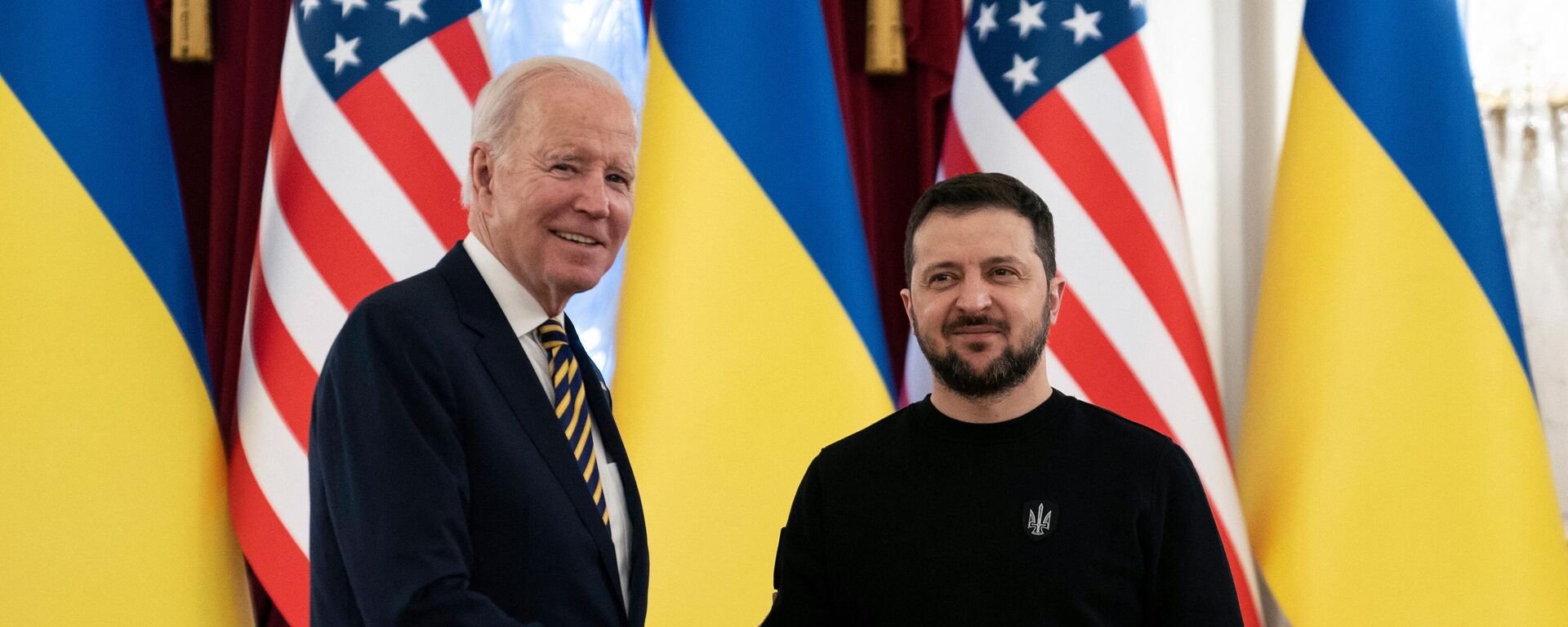Ukraine Crisis Endgame May Consist of West Forcing Kiev to Accept ‘Bastard Compromise’ With Moscow
15:38 GMT 24.02.2023 (Updated: 16:41 GMT 24.02.2023)

© Sputnik / Viktor Antonyuk
/ Subscribe
The US and its allies sabotaged Russian-Ukrainian peace negotiations last spring, sparking the conflict’s escalation into a full-on Russia-NATO proxy war and dramatically increasing the costs in Ukrainian and Russian blood and treasure. 10 months later, Western observers finally appear to be looking for a way out.
Forcing Ukraine to make territorial concessions to Russia in exchange for a big package of reconstruction aid may be the most “plausible endgame” in Ukraine, even if Kiev’s leaders don’t like it, a veteran UK observer with over four decades of experience covering Russia believes.
“Unlike in World War II, which ended with the allies capturing Berlin, no one imagines the Ukrainian flag one day flying over the Kremlin. If a comprehensive Russian defeat is ruled out, there will eventually have to be a political solution,” Philip Short wrote in a piece for a major US news magazine on Thursday.
“The likeliest outcome is some sort of bastard compromise – an armistice or an informal line of separation,” Short believes, saying Moscow will be almost certain to retain liberated territories in the Donbass, as well as Crimea, thus allowing the Kremlin “to claim a modicum of success,” while “the US will be able to argue that its support was decisive in enabling Ukraine to resist” Russia.
“Such an outcome is not predetermined but it is the most probable,” the veteran observer argues. “If it happens, Ukrainians will see it, not without reason, as betrayal, but in the end Kiev may have little choice but to accept. The West will sweeten the pill by providing massive reconstruction aid,” Short notes.
Admitting (and being one of the few Western observers to do so) that the Ukraine crisis is “more of a proxy conflict” than an “all-out war,” Short points to the conflict’s “non-standard rules, in which all the participants, direct and indirect, are fighting with one arm tied behind their backs.” Washington’s provision of advance warning to Moscow ahead of Joe Biden’s visit to Kiev this week was one “telling indication” of “just how unusual” this conflict is, according to the observer.
Praising the Biden administration for “holding together” and “strengthening” NATO in the current crisis, Short emphasized that “alongside his public assurance to President Zelensky that the US is ‘here to stay,’ the White House has warned privately that the West’s commitment is not unlimited.”
“Although no one is prepared to say so directly, one may doubt whether the White House even wants Ukraine to drive out Russian forces from all the areas they occupy,” the columnist suggested, pointing to the State Department’s cookie cutter statements that Russia “must return to its pre-2022 borders, not those that existed before 2014.”
“A Ukrainian advance into Crimea, where most of the population considers itself Russian and which, from Moscow’s standpoint, is a Russian province like any other, would risk precisely the kind of unmanageable escalation that the Biden administration is determined to prevent,” Short stressed.
The veteran journalist’s column is one of several surprisingly blunt analyses published in US and European media this week as Russia’s military operation in Ukraine hits the one year mark. While some outlets have continued to toe the line coming out of President Zelensky’s office that Ukraine will emerge victorious and “Putin will be defeated” this year, others point to “waning enthusiasm” for the proxy war, “Ukraine fatigue,” the raft of other problems plaguing the West, and comments by administration officials that “everyone understands that this [conflict] has to end at some point.”
Vox, a US-based news website which has generally cheered the Ukraine conflict over the past year, published a bold front page story spread Friday warning about “How Ukraine could become America’s next forever war.” The article pointed out that Washington doesn’t seem to have an “exit strategy” in Ukraine, just as it lacked one in Iraq and Afghanistan, and that the framing of all three conflicts has been the same – an ideological battle of “good versus evil, democracy against autocracy.”
“The Biden administration may believe that. But rhetoric like that is also how wars continue in perpetuity. It’s how the objectives creep, the goalposts shift. Ideological struggles are not so easy to win,” senior foreign policy writer Jonathan Guyer wrote.

Forget Cold War Stance & Politicization: What Did China Say in Its Position Paper on Ukraine Crisis?
24 February 2023, 04:53 GMT
The conflict in Ukraine could have ended 10 months ago, with US media reporting last fall that now ex-UK Prime Minister Boris Johnson flew to Kiev on NATO’s behalf in April 2022 to force Zelensky not to sign a draft peace deal with Russia. Former Israeli Prime Minister Naftali Bennett seemed to corroborate this information in a media interview earlier this month, saying that both Putin and Zelensky had expressed readiness to make “big concessions” to reach peace, but that the deal was “blocked” by the US and its allies.
Russia has made clear that its objectives in Ukraine include security for Donbass, recognition of Crimea as part of Russia, in accordance with the 2014 referendum, and legal guarantees that Ukraine will never join NATO (something laid out in the twin draft security agreements Moscow sent to Washington and NATO headquarters in Brussels in late 2021, but which the Western bloc rejected at the time).





